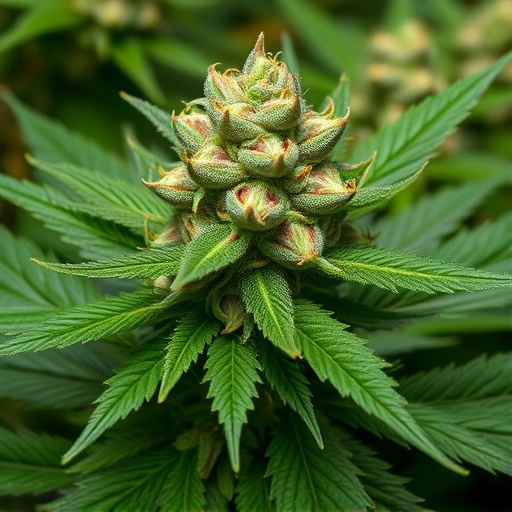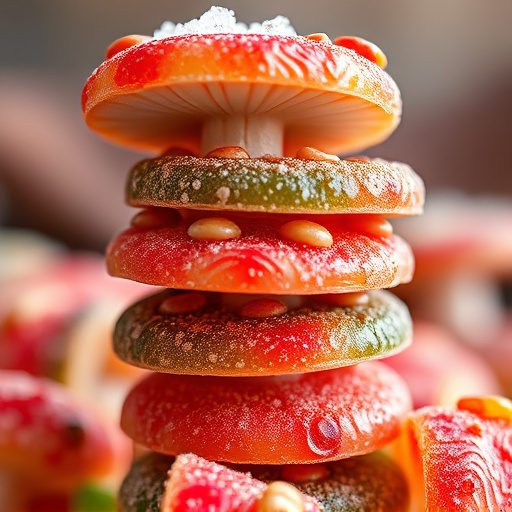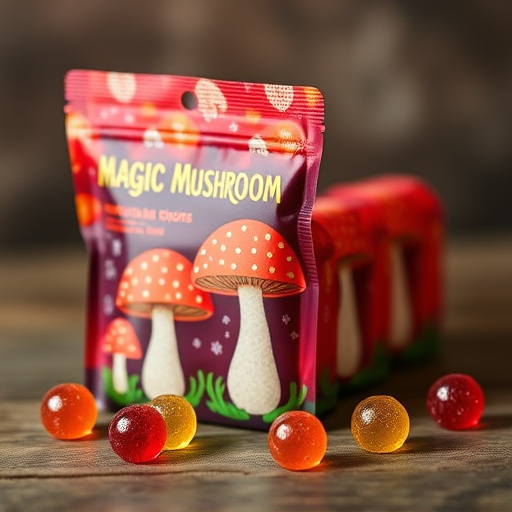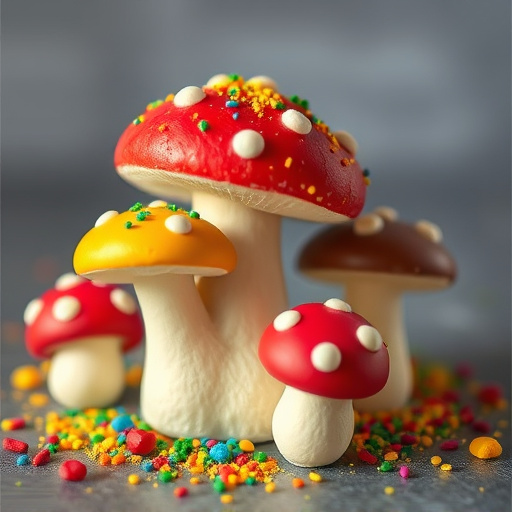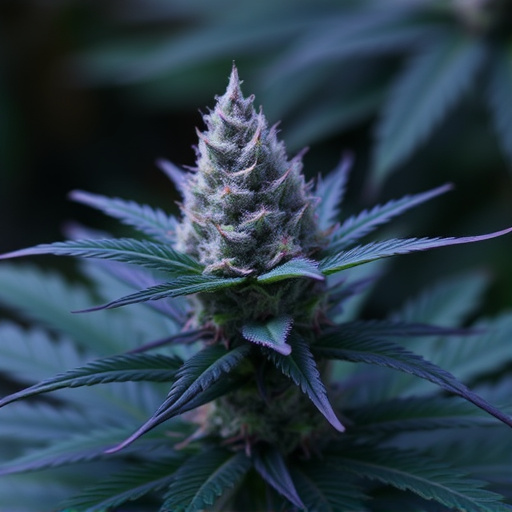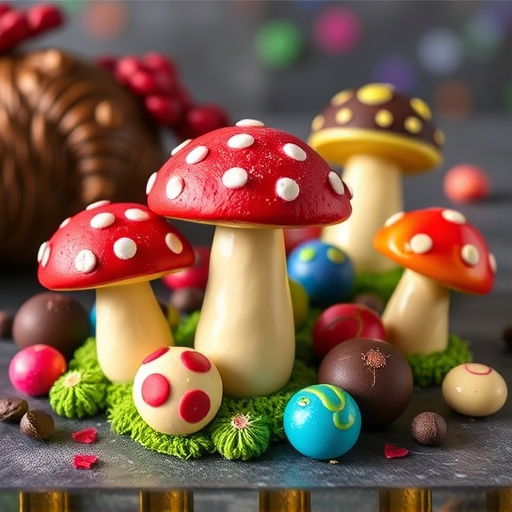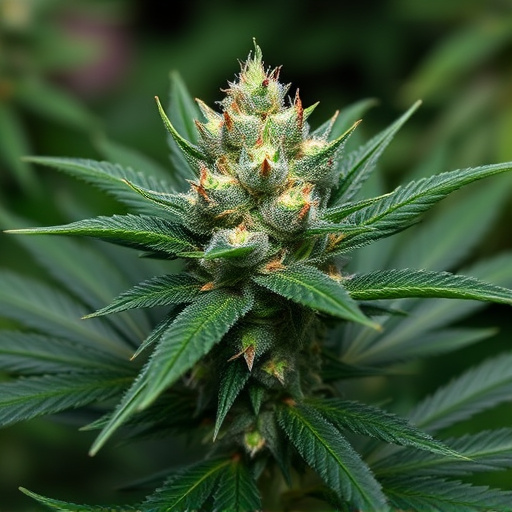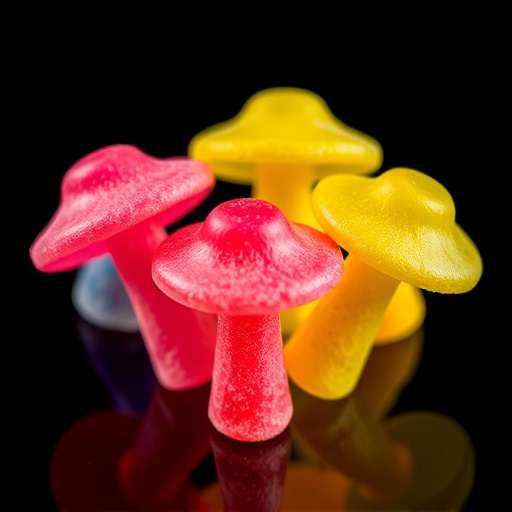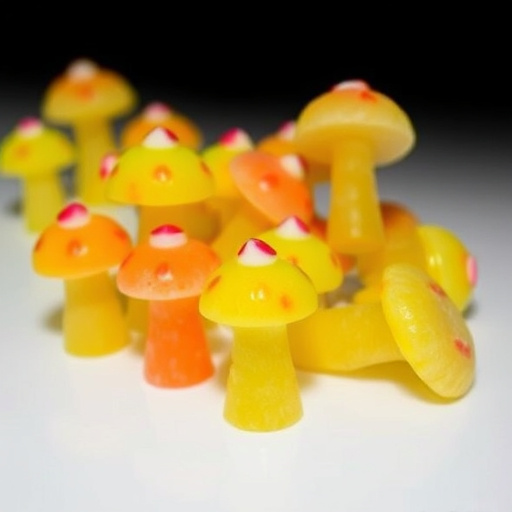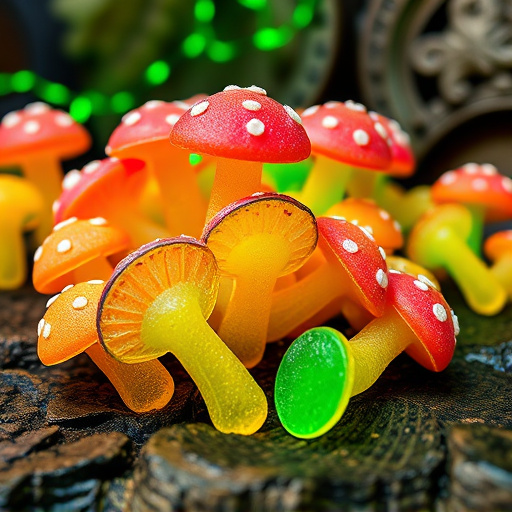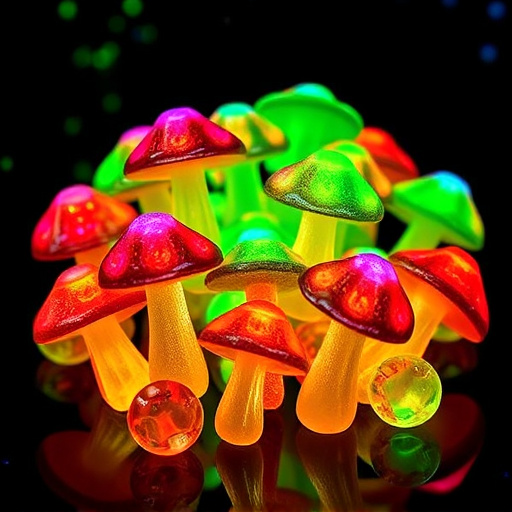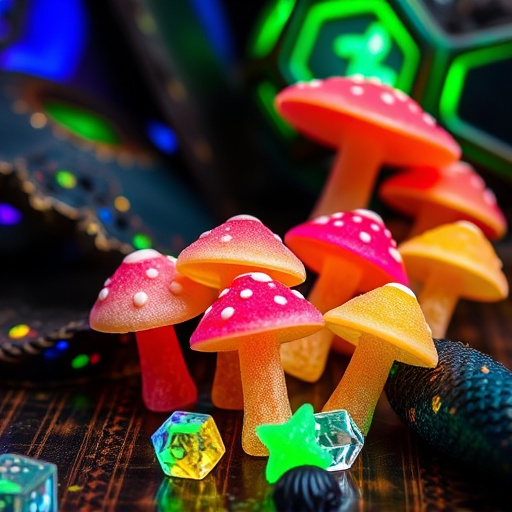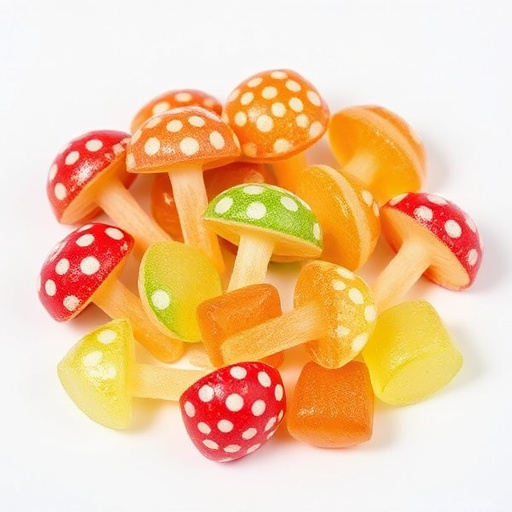Magic Mushroom Gummies are gaining popularity as a discreet way to consume psilocybin for its potential therapeutic effects, especially in mental health treatment. These gummies target the gut-brain connection by influencing serotonin levels in the gastrointestinal tract, which plays a crucial role in well-being and cognitive function. Research suggests that psilocybin can induce emotional experiences and promote brain health, while studies explore the link between gut microbiota and brain function, highlighting the power of these gummies to potentially improve mood, reduce anxiety, and enhance overall happiness through their impact on the gut-brain axis.
Looking for the best Amanita magic mushroom gummies? This comprehensive guide explores the benefits and safety of psychedelic mushroom edibles, delving into their active compounds and potential therapeutic effects. We uncover the profound gut-brain connection that explains their impact on mental health and overall well-being. Plus, learn crucial factors to consider when choosing high-quality magic mushroom gummies for a safe and effective experience.
- Understanding Magic Mushroom Gummies: Benefits and Safety
- – What are magic mushroom gummies?
- – The active compounds in psychedelic mushrooms and their effects on the brain
Understanding Magic Mushroom Gummies: Benefits and Safety
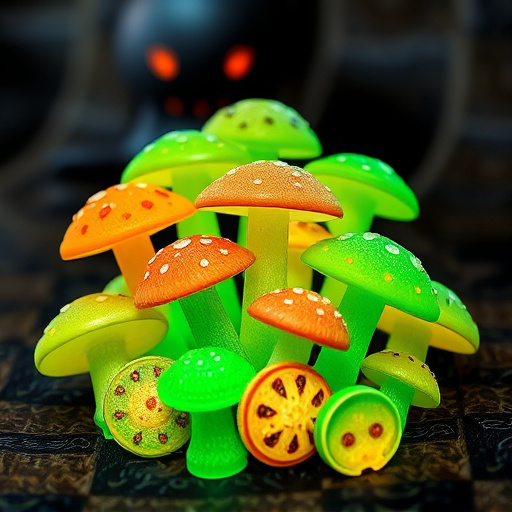
Magic Mushroom Gummies have gained popularity as a novel way to experience the psychotropic effects of psilocybin, the active compound found in certain types of mushrooms. These gummies are an edible form of psychedelic medication that offers a convenient and discrete method of consumption compared to traditional methods like dried mushroom brewing or injections. Beyond recreational use, there is growing interest in the therapeutic potential of magic mushrooms, particularly in addressing mental health concerns.
One notable aspect of Magic Mushroom Gummies is their ability to support the gut-brain connection. The gastrointestinal tract plays a crucial role in our overall well-being and cognitive function, with 90% of our serotonin receptors residing in the gut. Serotonin, often referred to as the “feel-good” neurotransmitter, significantly influences mood, appetite, sleep, and pain perception. By promoting a healthy gut microbiome through the consumption of magic mushroom gummies, individuals may experience improvements in mental clarity, emotional balance, and overall sense of well-being. This symbiotic relationship between the gut and brain highlights the emerging field of psychobiotics, which explores the profound impact of the gastrointestinal system on cognitive and physiological health.
– What are magic mushroom gummies?
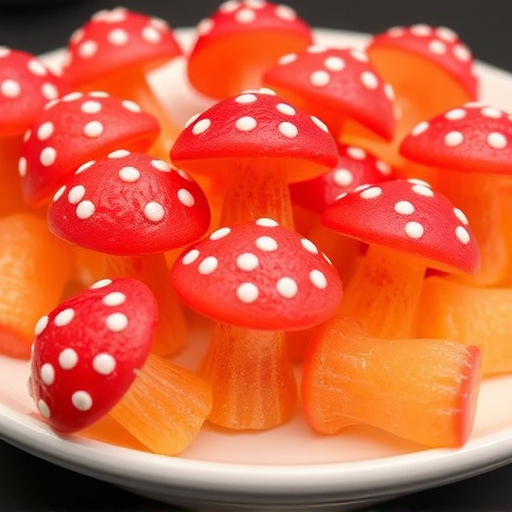
Magic mushroom gummies are a modern interpretation of traditional psychedelic medicines, offering a convenient and discrete way to experience the effects of psilocybin mushrooms. These edible treats contain extracted psilocybin, the active compound in certain species of mushrooms known for their mind-altering properties. The unique aspect of magic mushroom gummies lies in their ability to provide a controlled and consistent dose, making it easier for individuals to explore the potential therapeutic benefits.
Beyond the recreational use often associated with psychedelic substances, there’s growing interest in psilocybin for its positive impact on mental health and the gut-brain connection. Research suggests that psilocybin can facilitate profound emotional experiences and promote psychological well-being. Furthermore, recent studies explore the link between gut microbiota and brain function, implying that the beneficial effects of magic mushroom gummies might be attributed to their influence on the gut-brain axis.
– The active compounds in psychedelic mushrooms and their effects on the brain
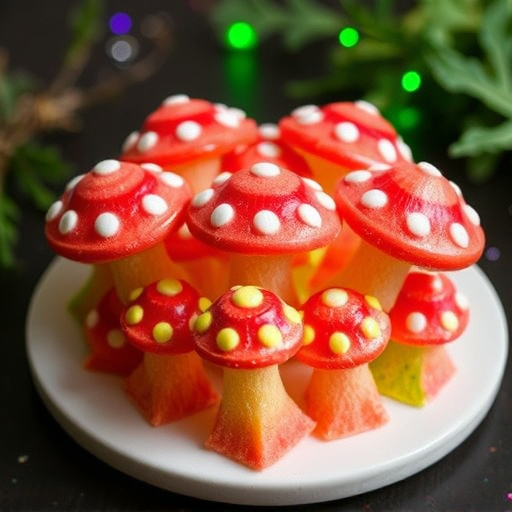
Psychedelic mushrooms, like those found in the genus Amanita, contain powerful active compounds known as psilocybin and psilocin. When consumed, these compounds are metabolized by the body into a range of effects on the brain. Psilocybin primarily acts as a partial agonist at serotonin receptors (5-HT2A), leading to altered states of consciousness, enhanced creativity, and spiritual experiences. These mushrooms have been used for centuries in ritual contexts, and modern research is uncovering their potential therapeutic benefits.
Beyond their psychological effects, magic mushroom gummies—a popular edible form—also engage the gut-brain connection. The gut produces a significant amount of serotonin, which communicates with the brain, influencing mood, emotion, and cognitive function. Consuming psilocybin-containing edibles may interact with this axis, potentially offering not only psychedelic experiences but also improvements in mood, anxiety reduction, and enhanced overall well-being. This interaction highlights the complex relationship between gut health, brain functionality, and the therapeutic potential of natural compounds like those found in Amanita mushrooms.
In conclusion, magic mushroom gummies represent a novel and potentially beneficial approach to harnessing the power of psychedelic compounds. By understanding the gut-brain connection and the unique active substances found in these mushrooms, we can explore their therapeutic potential for various mental health conditions. However, it’s crucial to approach this topic with caution and emphasis on safety, ensuring proper research and guidance before consumption. The future of mental wellness may lie in innovative treatments like magic mushroom gummies, opening doors to new possibilities for a healthier mind-body relationship.
